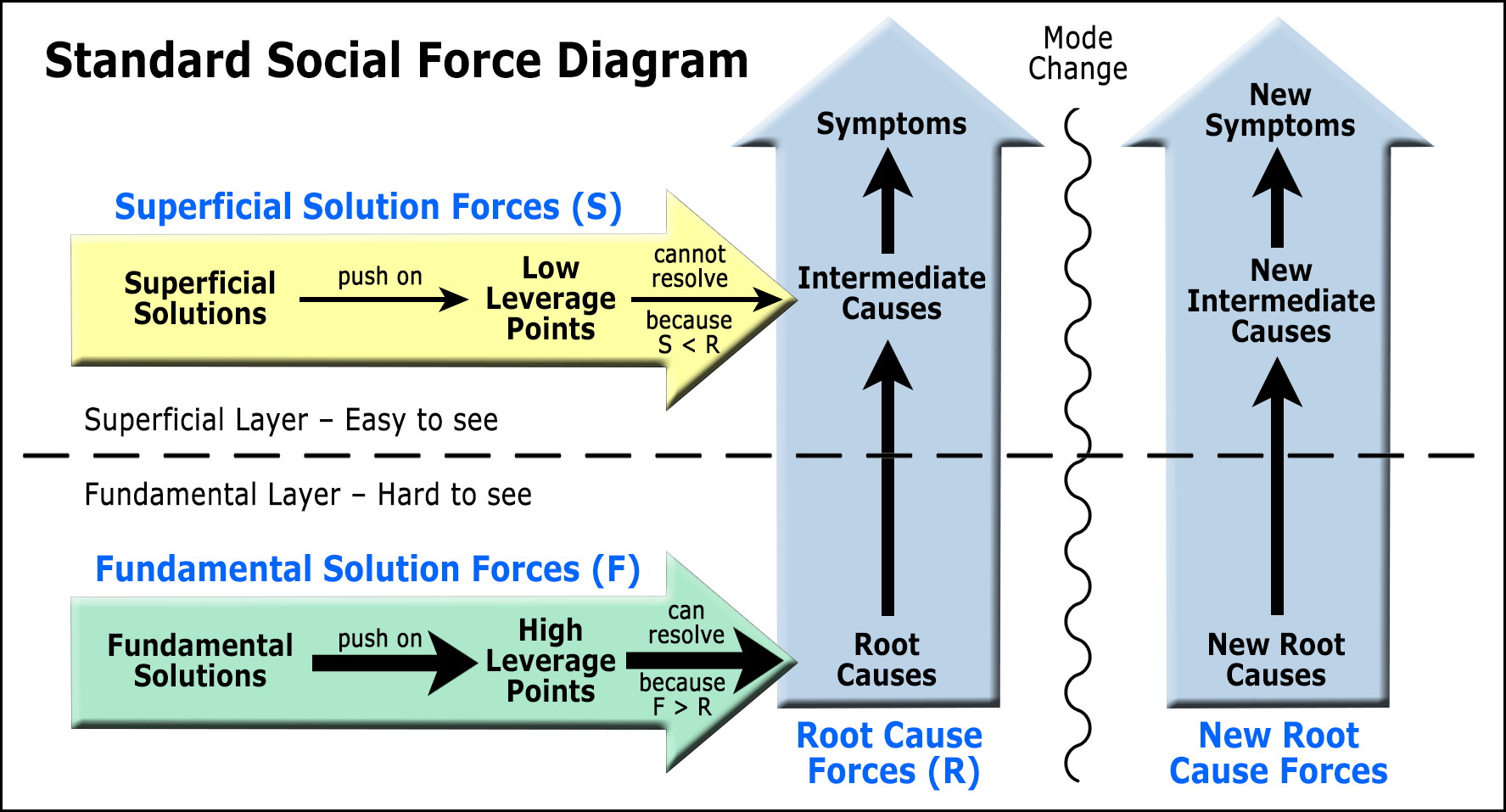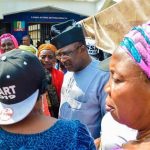As was to be expected, the Nigeria Labour Congress (NLC) came out unequivocally, as reported by the media on November 18 2005, to reject the support which the President of the Manufacturers Association of Nigeria (MAN), Charles Ugwuh, had given to the hidden agenda to impose a third term on the Nigerian people by the Obasanjo clique. The NLC statement issued jointly by its acting president, Abdulwaheed Omah and secretary, John Odah, had described the MAN posture as “self-serving, parochial and unpatriotic.” The NLC had rightly noted that Charles Ugwuh’s support for Obasanjo clique’s perfidious attempt to subvert our national constitutional order was rather incongruent with the well-known lamentations of MAN over the disastrous effect of Obasanjo’s unpatriotic economic policies on national industry, most of which operate below capacity. The NLC’s rejection of the third term agenda came in the wake of the call to Nigerians by a coalition of NGOs under the auspices of Grassroots Initiative (GI), to check a slide to a fascist state under the Obasanjo dictatorship, while the Committee for the Defence of Human Rights (CDHR), expressed its readiness to work with all progressive Nigerians to stop the Obasanjo third term agenda by all legal means necessary. These two reactions from civil society organisations came in the wake of the stirrings by members of the national political elite to create new platforms of political organisation, the MDD and MRD, to stop the Obasanjo monster in its tracks before it devours the baby of Nigerian democracy. While the past two weeks have seen the emergence of a Northern Nigerian parliamentary platform dedicated to the derailment of the third term train of the Obasanjo clique. Not even the gloss that the conquered PDP machinery has attempted to put on the face of the recent events in the country can remove the fact that the third term train is tilting very perilously towards derailment, because despite Ojo Madueke’s recent huffing and puffing, they are becoming increasingly isolated in Nigeria today. The people identified as the movers of the third term agenda are perhaps the most unpopular people in Nigeria today. SUNDAY PUNCH of December 4 2005, reported that Senator Ibrahim Mantu was arguably the most isolated and unpopular person at the Northern Senators gathering in Kaduna last weekend, with a group of people carrying placards rejecting the work of his constitutional committee in the Senate. The same sentiment is being expressed against all other people recognised as part of the perfidious third term agenda, all around Nigeria. A most interesting scenario is unfolding in Nigeria that can only work in the interest of the Nigerian people, and that is the two-pronged essence of the anti-third term mobilisation that must be carefully nurtured to fruition. On the one hand is the parliamentary platform that Northern members and senators have constructed. It is a formidable barrier to the Obasanjo clique’s agenda, because it is clear, as the PDP’s advertisement in THISDAY of Sunday, December 4 2005, clearly stated that the thrust of the third term plan is hinged upon achieving a constitutional amendment. Ojo Maduekwe in the advertorial clearly conveys the feelings of the clique that has captured the ruling PDP about the store they have set by the constitutional amendment. It is therefore a major statement of potential defeat for Ojo Maduekwe and his principal the point in the communiqué of the Northern Senators Forum, that “we are opposed to any amendment to the 1999 Constitution, which may provide opportunity for elected public officers already occupying offices under Section 130 and 176 of the constitution to serve more than two terms as provided by the constitution. For the avoidance of doubts, this resolution refers to the offices of the president and governors.” It becomes a sure banker checkmate for the Obasanjo clique, in the language of chess, to be able to push through this third term agenda if the Northern legislators are firm in their resolve. That is why all kinds of means are being employed to break the ranks of the members of the National and States Assemblies; there are those breakfast meetings to win or cajole them to the Obasanjo agenda and as the media has reported the planned monetary inducements of N 100 million for each senator; N75 million for members of the House of Representatives; N50 million for speakers of the State Houses of Assembly and N35 million for their members. It’s an almost unbelievable descent to delusion, and also a marker of the depth of the contempt they have for the Nigerian people. The other track that I am particularly interested in today is the extra-parliamentary dimension to the opposition to the emergent Obasanjo dictatorship and the third term agenda. It has become imperative for civil society groups to commence a national mobilisation on a scale greater than the one that removed military dictatorship from Nigeria. The Obasanjo clique is one of the worst nightmares ever inflicted on Nigeria as we have regularly argued on this page. Let’s take a look at some of the reasons why I believe that popular social forces must be at the forefront of the effort to defeat the Obasanjo dictatorship. The regime came to power in 1999 as the greatest beneficiary of the huge popular wave that the Nigerian people built to terminate military dictatorship in our country. Obasanjo was swept to power on the crest of the general expectation that a government and president to work genuinely for the Nigerian people had been instituted. But from the beginning, the man did not implement the social welfarist programme of the People’s Democratic Party. On the contrary, Obasanjo became converted from a patriotic/nationalist economic programme to a crude neo-liberal, monetarist agenda. He began a systematic assault on our national productive forces through his illegal privatisation programme. As part of his implementation of those policies that benefit foreign political and economic forces, he has done everything to weaken popular social forces like the working people. His economic policies have led to a greater level of misery in Nigerian society, at a time of unprecedented earnings from petroleum products pricing in the international system. Obasanjo’s conception of leadership is crudely authoritarian, and he has cast a long undemocratic shadow on the nation’s political process. What the Nigerian people hoped for was an incremental deepening of the content of our democracy. Under his watch, democracy has increasingly become a farce, a shuffling of the card at the behest of Obasanjo. We defeated military dictatorship but didn’t win the battle for democracy, precisely because the worst defenders of authoritarian undemocratic methods of organising society’s leadership actually inherited power after 1999. The check list is just scary: Obasanjo himself (an unrepentant military dictator), ably assisted by politicians who spent their careers serving dictatorship, such as Chief Tony Anenih, Ojo Maduekwe, Professor Jerry Gana, Colonel Ahmadu Ali, Ibrahim Mantu and several others. Obasanjo’s contempt for the due process that is the hallmark of democracy has been one of the most important markers of his years in power. He has spent the best part of his tenure attempting to emasculate the institutions of democracy, or setting himself up as the only “clean” person; the nation’s “super patriot” in a sea of thieves, in order precisely to be able to continue to trample underfoot the democratic process. After all, isn’t he the all- knowing, all-wise “Baba?” It is part of that contempt that the clique can even attempt to ram down our throats the agenda for a third term in power! The popular social forces of Nigerian society have in Obasanjo a formidable foe, because he is consciously anti-people. This is also the reason why we have to lead the extra- parliamentary aspect of the struggle to defeat his dictatorship in order for us to be able to reclaim the nation’s prostrate democratic process. We must breathe a new life into Nigeria’s democracy; purge the authoritarianism that Obasanjo has worked so hard since 1999 to supplant the people’s true yearning for democratic consolidation. Historically, it has been popular social forces such as workers, professionals and the youth that have provided the mass base against dictatorship. In the anti-colonial struggle after 1945, the struggle for independence found that democratic mass base only with the active participation of Comrade Michael Imoudu and the trade unions. Before then, the anti-colonial struggle was all about petitions and delegations to the colonial office, which of course didn’t cut ice with the eminent men of the colonial system. It took the working people with Imoudu at their head, and a movement of anti-colonial strikes, to shake the system to its roots. The same mass base was given to the struggle against military dictatorship during the 1 990s. It was the strikes of the oil workers and other detachment of the working people that turned the demand to end military dictatorship to a broad people’s movement. The political elite swept to power on the basis of that militant movement against the military dictatorship so powerfully symbolised by the various strikes of workers at the head of a mass action of other popular social forces. The greatest beneficiary of that movement was of course Olusegun Obasanjo, who unfortunately has turned out to be the most determined enemy of the mass of the Nigerian people in his actions and policy choices over the last six years. The popular social forces have to get back to the trenches to lead the movement against Obasanjo’s dictatorial intentions through the effort to manipulate the constitution to secure an amendment to get him perpetually in power. It is unacceptable and unpatriotic, as the NLC and the other popular social forces have all stated in an unambiguous manner. This is why the popular forces must link their extra-parliamentary mass actions with the parliamentary struggle to frustrate the effort to amend the constitution along with the political manoeuvres by the political elite to build new platforms of struggle, as represented in the new alliances forming around MDD and MRD. They represent a most welcome riposte to the Obasanjo cabal. It has however become important for the popular social forces to make a conscious effort to influence the content of the programme of struggle that is being canvassed against the Obasanjo dictatorship. One of the major pitfalls of the struggles waged in the past was our continuous abandonment of the content of the post-dictatorship governmental programme to the political elite. That inability to follow through has cost the country’s working people and the poor so much in terms of the anti-people programmes often implemented by the governments that come to power. This explains why the Nigerian people made all the sacrifices to defeat military dictatorship only for Obasanjo to betray our sacrifices through the appointment of such reactionary intellectuals like Dr Okonjo-Iweala,Dr Ezekwesili, Dr Soludo and others to come and impose on Nigeria the pro-imperialist, neo-liberal economic policies that have fundamentally undermined the sovereignty of Nigeria. When we defeat the Obasanjo dictatorship, we have to also ensure that the government that comes to power decisively rejects his discredited, anti-people neo-liberal economic policies of surrender to imperialism. We must defeat his pro-imperialist economic team and install a team that serves Nigeria’s genuine national interest. This must be the negotiated platform for us to lead the struggle, the mass action to defeat the third term agenda and the Obasanjo dictatorship. As we have argued severally on this page, the economic and political cabal in support of the Obasanjo third term agenda are all united against the interests of the Nigerian people; they want Obasanjo’s continued stay in power, because they have calculated that it is the best guarantee of safety from a revisit and retribution for all the crimes they have committed against the Nigerian people. So what we will do next week Insha Allah is to provide an agenda for a post-Obasanjo Nigeria.
POPULAR SOCIAL FORCES AND THE THIRD TERM AGENDA


